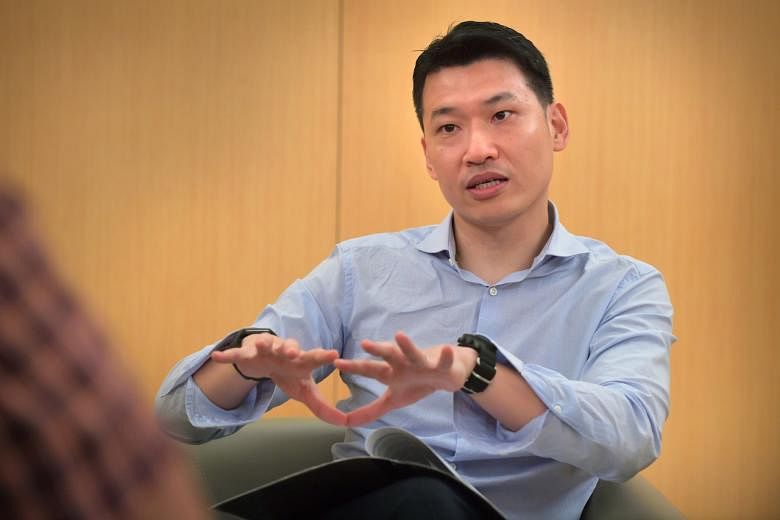SINGAPORE - From guided missiles to portable Covid-19 testing labs, Singapore's defence scientists and engineers have done good work but need to step out of the shadows and into the limelight to continue attracting talent.
A year-long rebranding campaign for the 6,500-strong defence technology community (DTC) is doing just that. Started last October, it is using social media, advertisements on buses plying routes near universities and outreach events to tackle the perennial talent crunch, said deputy secretary for technology at the Ministry of Defence (Mindef) David Neo on Thursday.
Social media posts highlight competitions organised by DTC entities and staff interviews, for instance.
The DTC, which includes DSO National Laboratories, the Defence Science and Technology Agency (DSTA), the Centre for Strategic Infocomm Technologies (CSIT) and some Mindef departments, has been credited with providing the technological cutting edge to the Singapore Armed Forces (SAF).
It hopes to attract "good people with a strong sense of purpose" to join because of the evolving nature of threats facing Singapore, said Brigadier-General Neo, who is spearheading the campaign.
An example of an emerging threat was the flight disruptions caused by unauthorised drones flying around Changi Airport in June 2019, he said.
The SAF had been tasked with resolving the disruptions, and DTC engineers were with them at the airport to help figure out how to detect the unauthorised drones.
This entailed "a lot of on-site tuning and adjustment of the algorithms" to ensure their equipment filtered out the noise to detect only the drones, BG Neo said.
Just as the DTC needs to work closely with the SAF to reinvent itself to address emerging threats, it will have to rebrand itself in line with current trends, he added.
There is also a need to correct misconceptions of the DTC, for example, that only extremely qualified people with postgraduate degrees can join.
Another concerns the personality of those in the DTC.
"Not all scientists and engineers are boring... There are very fun people in the DTC, but one (trait) of scientists and engineers is that they don't like to talk about themselves," said BG Neo.
That has begun to change, by necessity.
For a start, a 6½-minute-long video posted on Mindef's Facebook page last October features past winners of the Defence Technology Prize talking about their winning projects in a fast-paced question-and-answer format, replete with witticisms.
CSIT also plans to launch a technical blog this year to provide a platform for staff to showcase selected pieces of work and engage the public.
While recruitment is key, so is retaining talent, and ongoing efforts include promoting continuous learning through dedicated training institutes at DSO, DSTA and CSIT.
BG Neo also said the DTC is thinking about adopting a "more porous" approach to grow its manpower with more mid-career hires who have industry experience, and rehiring DTC alumni returning from private sector stints.
As emerging technologies such as artificial intelligence, cyber security and cloud computing - rapidly innovating and developing fields in the private sector - have both commercial and military applications, the DTC has to compete with tech giants to attract talent, he noted.
Asked about remuneration, he quipped: "We never want money to be the reason why people join us - but at the same time, we want to make quite sure that money is not a reason people do not join us."
And his message to the young people of tomorrow?
"If you want a career that gives you meaning, purpose, relationships, builds you up and helps you become the best that you can be, and at the same time... help to defend the country... DTC is a good place for you."


